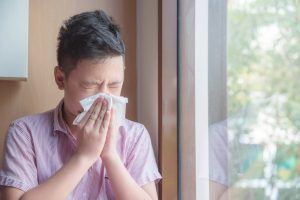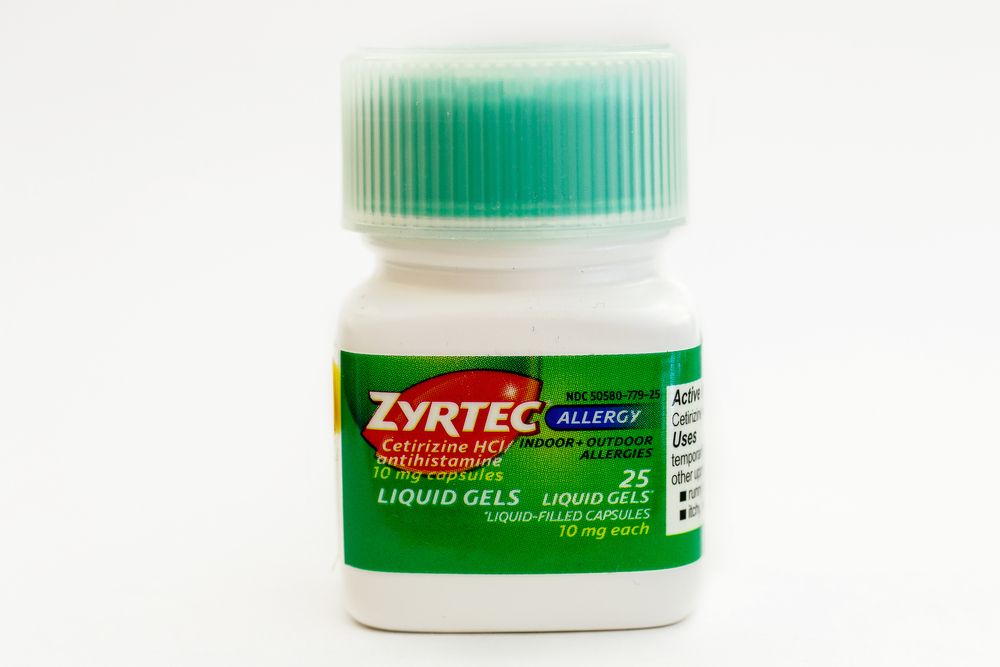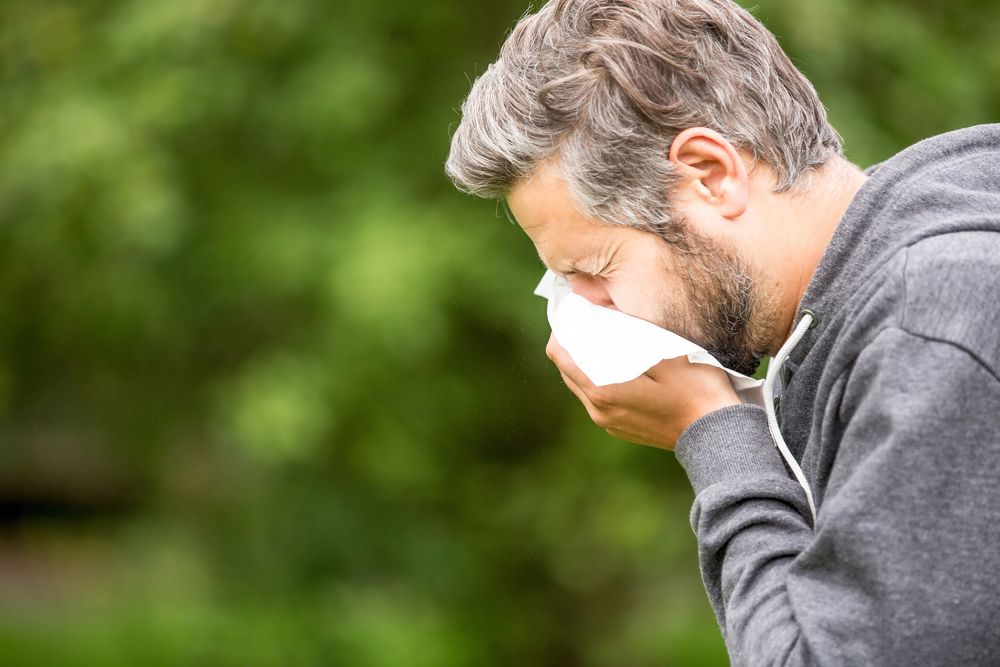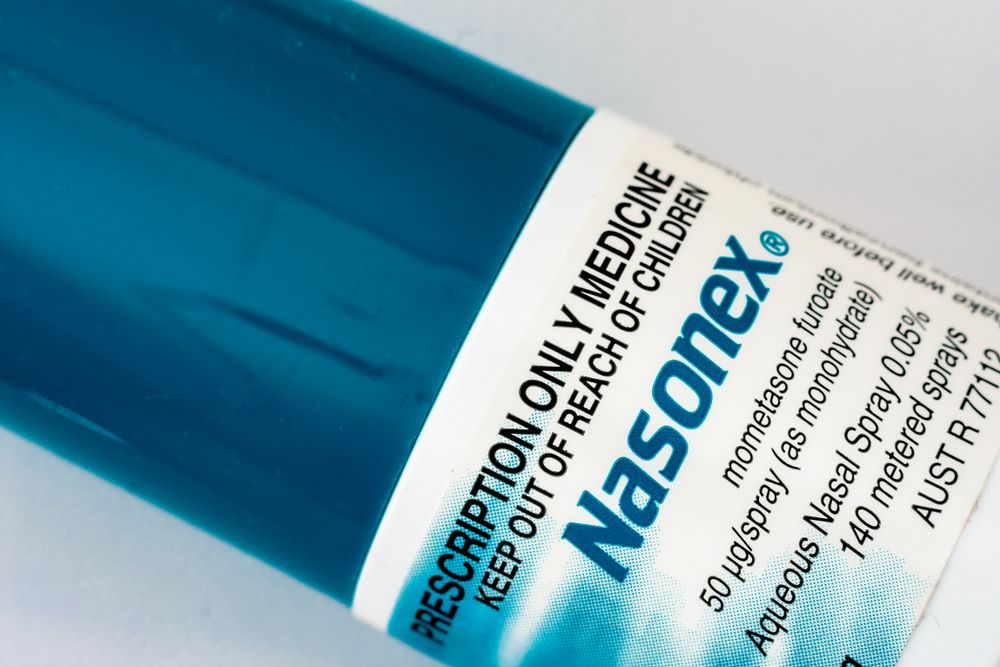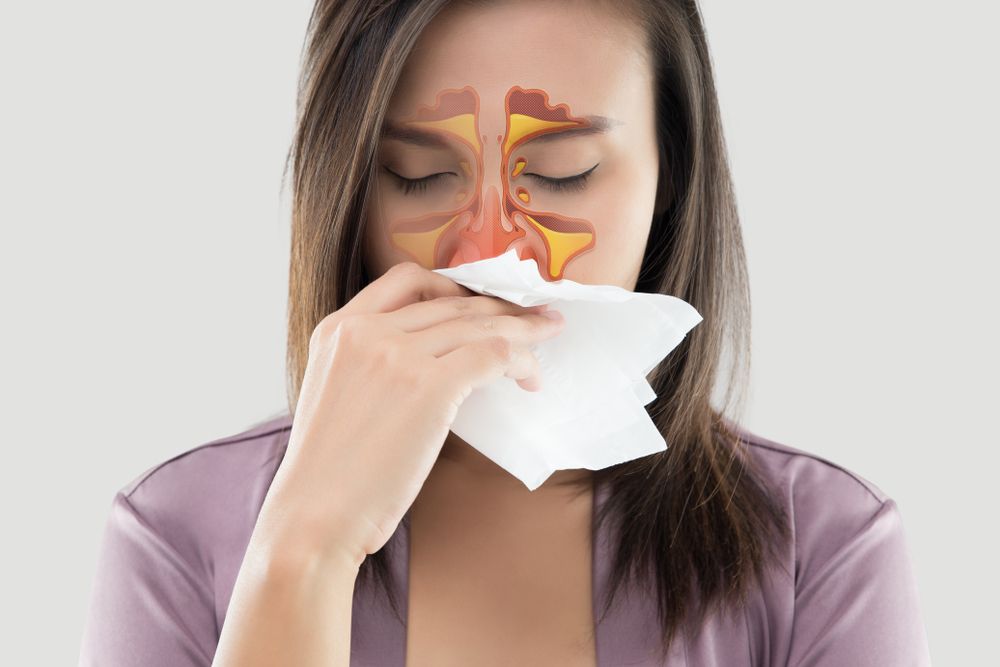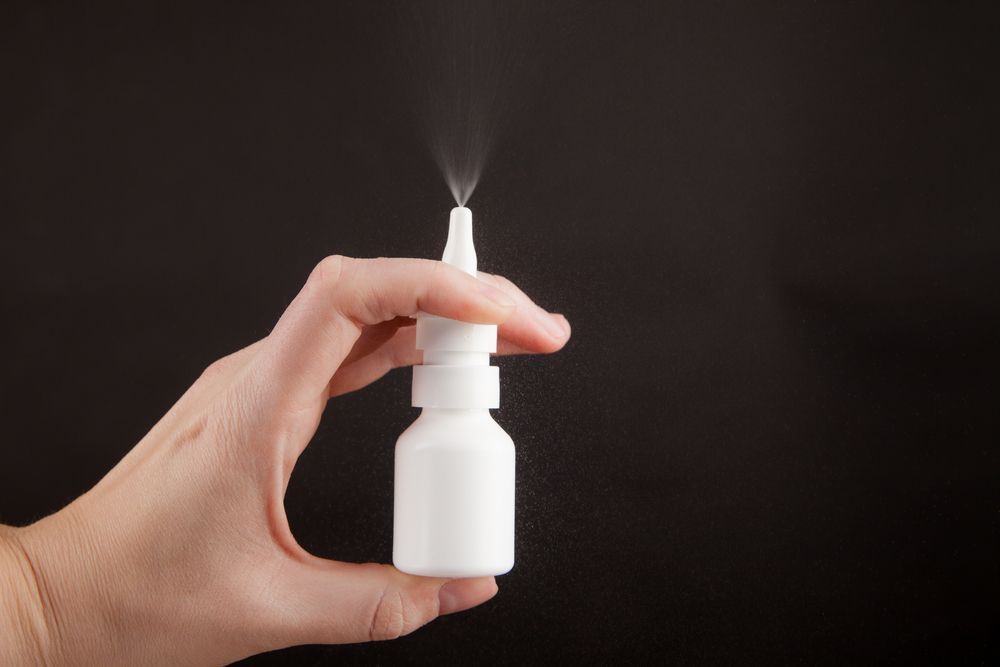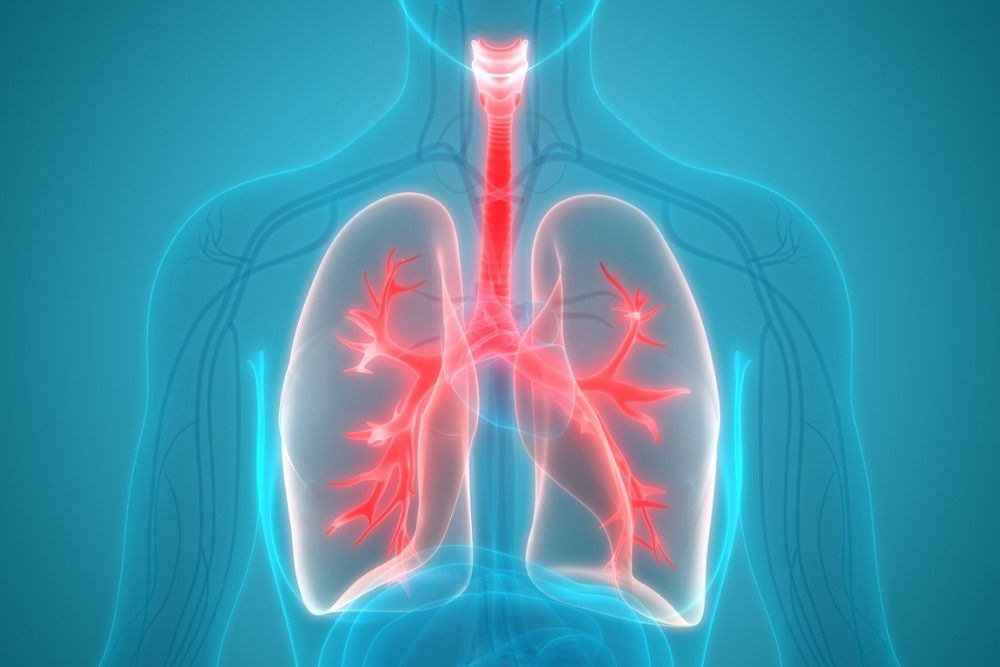Allergies occur when the body has a hypersensitive response to a normally harmless allergen. This triggers the release of substances that cause inflammation, resulting in symptoms like watery eyes and a stuffy or itchy nose. (Learn More)
The extra mucous that’s produced as part of the inflammatory response may drain down the back of the throat, resulting in a sore throat. Allergens may also cause tissues in the back of the throat to become swollen. (Learn More)
Not all sore throats are cause by allergies. Other causes of sore throat include viral and bacterial infections, exposure to dry air or pollutants, and more serious health problems, like tumors or HIV. (Learn More)
Some indications that your sore throat is caused by allergies and not an infection is a “scratchy” feeling in the throat, watery and itchy eyes, and the absence of a fever or swollen glands. (Learn More)
Antihistamines block the effects of inflammation-causing substances in the body, and they are a popular choice for treating allergy-related sore throats.
Decongestants may be used, but they could increase blood pressure and heart rate.
Nasal steroid sprays are effective in treating the nasal irritation causing post-nasal drip, but they could take up to two weeks to work. (Learn More)
Understanding Allergies

Allergies occur when the body’s immune system identifies a usually mild substance — like pollen or dust mites — as a threat and begins to build a sensitivity to it. As part of this sensitization process, the immune system begins to create antibodies to defend itself against the allergen.
During or after sensitization, when the body encounters the allergen, it will release the antibodies as a defense mechanism. The antibodies trigger the release of other chemicals, like histamine, which cause inflammation. This inflammation causes the symptoms associated with allergies, like watery eyes and a stuffy nose.
How Do Allergies Cause a Sore Throat?
Part of the inflammatory allergic response that causes these common symptoms is the production of extra mucous. This mucous can lead to a runny nose and congestion, along with other unpleasant allergic symptoms.
Since the nose, ear, and throat are all connected, this additional mucous can affect the throat. Ultimately, this is what triggers the sensation of a sore or raw-feeling throat.
Allergies can create a sore throat due to post-nasal drip. This occurs when excess mucous “drains,” dripping down the back of the throat. This often leads to tenderness, irritation, and pain.
Other symptoms of post-nasal drip include:
- Repetitive coughing.
- Excessive swallowing.
- Irritation of the throat.
- Vocal difficulty.
Allergens can cause tissues in the back of the throat to become inflamed, adding to the soreness and discomfort.
While not everyone with allergies experiences a sore throat, it is a common allergic symptom that can affect anyone.
Other Possible Causes of a Sore Throat
Allergy-related sore throats are common, but there are many other causes of sore throat and throat discomfort.
- Viruses, including the common cold, the flu, and the Epstein-Barr virus (EPV), which can lead to mononucleosis
- Bacterial infections, such as strep throat
- Irritation caused by dry heat, chemicals, or pollutants
- Acid reflux
- More serious conditions, including tumors and HIV
How to Tell if a Sore Throat Is Caused by Allergies
It’s not always easy to tell if a sore throat is caused by allergies, a cold, or something else, especially because many of the symptoms of allergies — like a runny nose, fatigue, sneezing, and congestion — are also symptoms of a viral upper respiratory infection, like the flu or a cold.
Here are some indictors of whether your sore throat is caused by a virus or allergies:
- Itchy, watery eyes are a symptom of allergies, but not of the flu or a cold.
- Fevers may be a symptom of the flu, a cold, or a bacterial infection, but not of allergies.
- Muscle and body aches may be a symptom of a viral or bacterial infection, but not of allergies.
- Swollen lymph nodes in the neck area indicate an infection and not allergies.
- Colds and the flu do not usually last for more than two weeks. Allergies may last as long as someone is exposed to the allergen. For seasonal allergy sufferers, this may mean six or so weeks.
- A “scratchy” feeling in the throat is more common with allergies.
What Medications Treat an Allergy-Related Sore Throat?

Limiting your exposure to allergens is always an important consideration in treating allergy symptoms, but this may be next to impossible for many, depending on lifestyle and the type of allergen.
There are many medications available to treat allergies.
- Antihistamines: For many allergy sufferers who experience a sore throat as part of their symptoms, an over-the-counter antihistamine medication may be their first choice for allergy relief. Antihistamines work by blocking the effects of histamine, an inflammation-causing substance that’s released during an allergic reaction.
Antihistamines have side effects that may include drowsiness and blurred vision. Some people experience these side effects more severely than others. Newer antihistamines like Zyrtec have fewer side effects and work just as effectively, so they are often preferred. - Decongestants: A decongestant may be helpful in treating allergy-related sore throat. Decongestants narrow blood vessels to relieve congestion.
Decongestants like phenylephrine and pseudoephedrine can increase blood pressure as well as heart rate, so be sure to discuss these medications with your doctor before starting them, especially if you have hypertension or a family history of diabetes, heart or kidney problems, or stroke. - Nasal sprays: Corticosteroids, or steroid nasal sprays, are very effective in treating allergic rhinitis — the inflammation of the nasal lining that’s often the root cause of the post-nasal drip that may be leading to a sore throat.
Corticosteroids are very safe when taken at proper doses. They can take up to two weeks to fully take effect, so they may not be the best choice for immediate relief.
References
Everything You Need to Know About Allergies. (October 24, 2017). Medical News Today
Is It Normal to Get a Sore Throat When You Have Spring Allergies? (February 18, 2019). Prevention.
How to Deal With a Sore Throat. (February 27, 2019). Medical News Today.
How to Tell if a Sore Throat Is From an Allergy or a Cold. (May 7, 2019). Medical News Today.
Allergies and Sore Throat: Treating the Cause. (August 17, 2017). Healthline.
What Is an Antihistamine? (November 25, 2015). Everyday Health.
Decongestants to Treat Allergy Symptoms. (March 11, 2016). Healthline.
Allergic Rhinitis. (February 6, 2018). American College of Allergies, Asthma, and Immunology (ACAAI)


